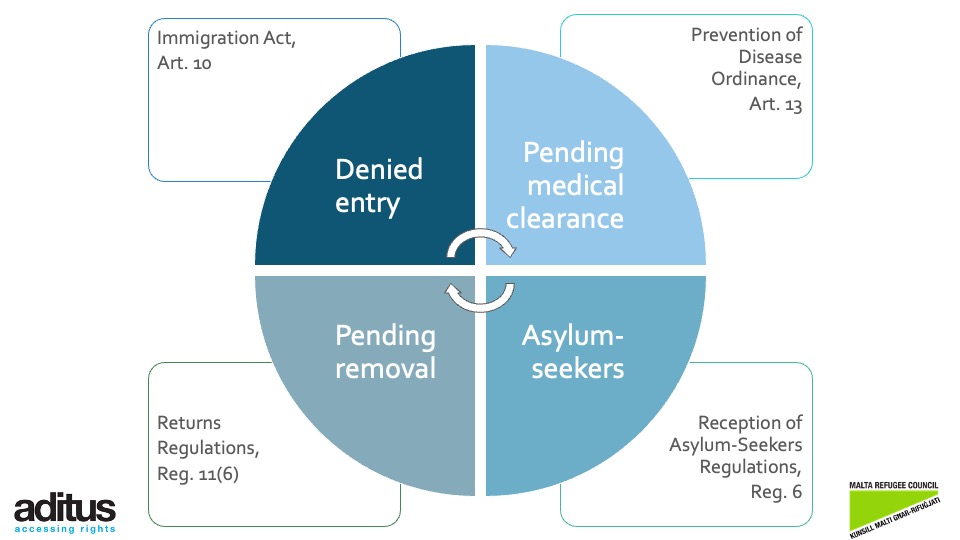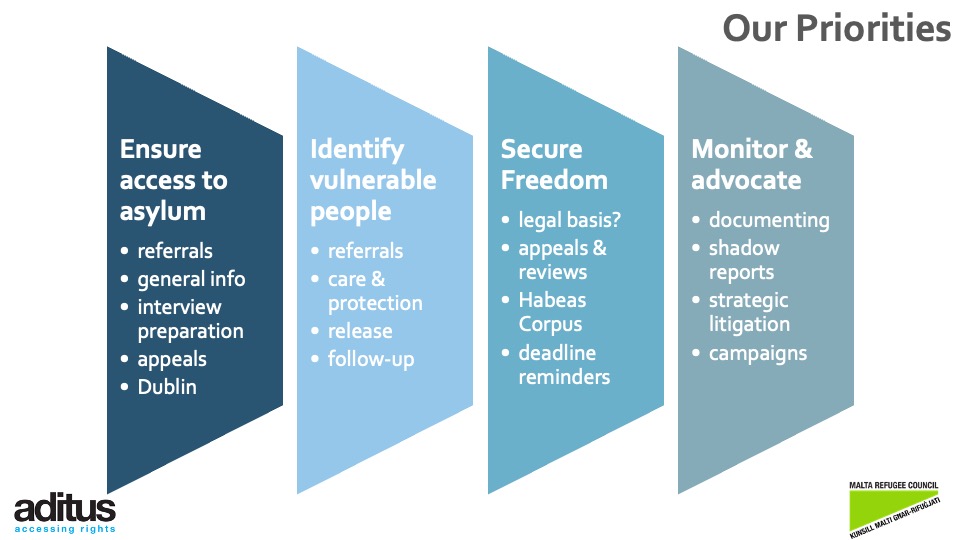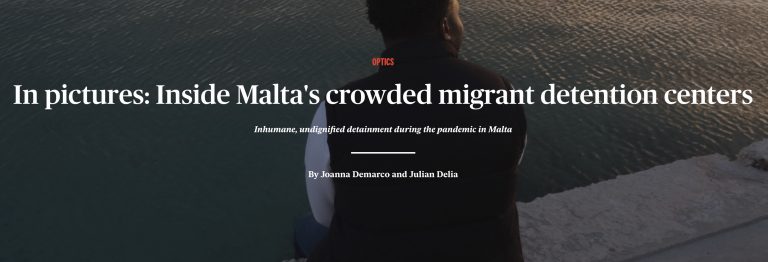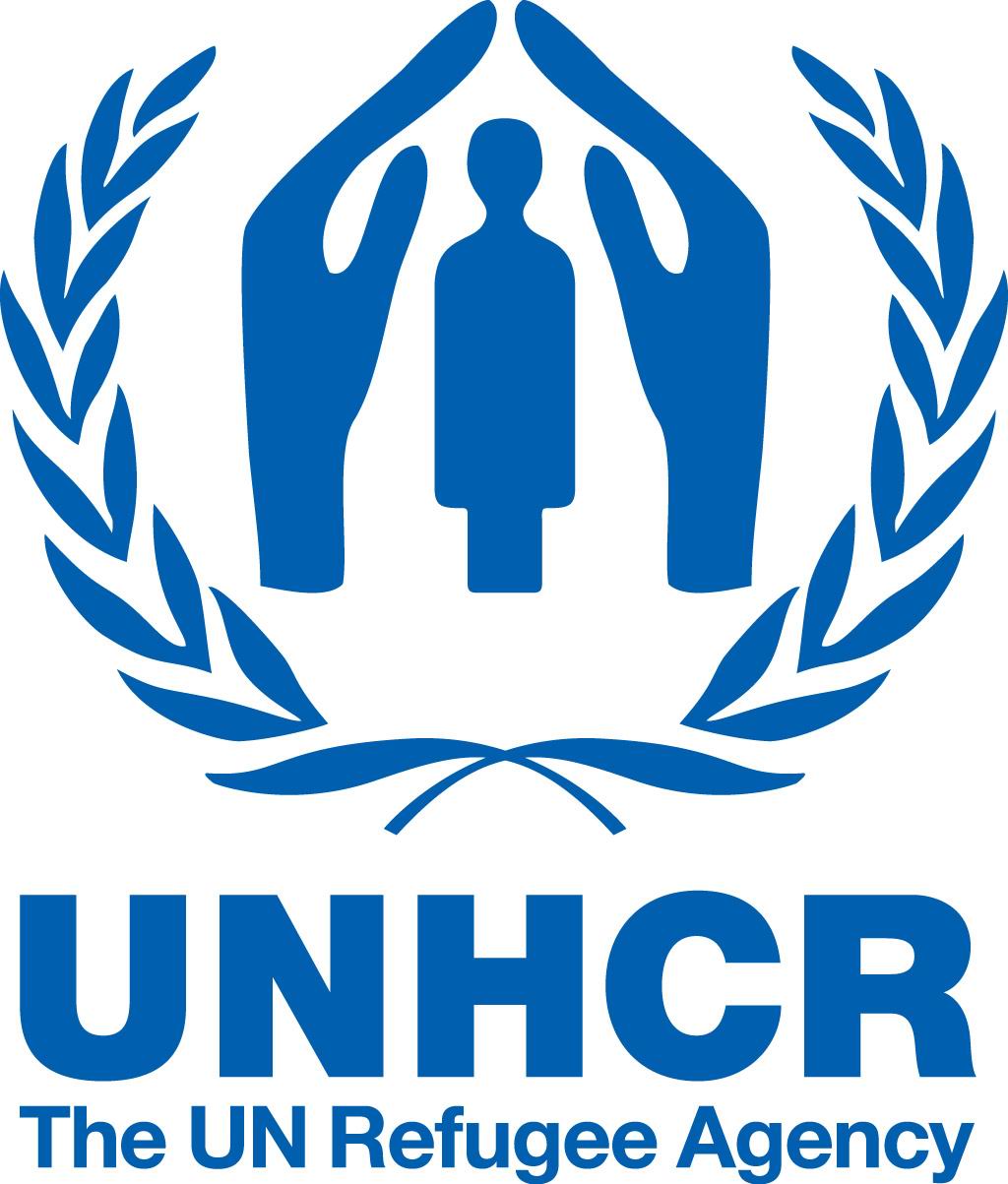Malta’s systematic detention of asylum-seekers and migrants has for years been criticised by key human rights bodies. The European Court of Human Rights (here, here and here), the Council of Europe’s Human Rights Commissioner, the Committee for the Prevention of Torture and Malta’s own Courts have all had harsh words to describe a policy that ignores international, European and national standards.
We visit detention on a regular basis, where our Pro Bono Unit provides legal information and services on how to challenge the detention legality. Together with assisting persons on their detention, we also guide them through other important procedures they must go through whilst detained: the asylum interview and appeals process, age assessment, vulnerability assessment and Dublin claims.
Malta’s detention regime must change.



Our work combating Malta’s detention regime is supported by:



